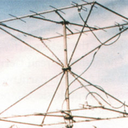23C3 - 1.5
23rd Chaos Communication Congress
Who can you trust?
| Speakers | |
|---|---|

|
Oona Leganovic |
| Schedule | |
|---|---|
| Day | 3 |
| Room | Saal 3 |
| Start time | 12:45 |
| Duration | 01:00 |
| Info | |
| ID | 1563 |
| Event type | Lecture |
| Track | Society |
| Language | English |
| Feedback | |
|---|---|
|
Did you attend this event? Give Feedback |
Funkerspuk
radio politics in the USA and Germany in the first half of the 20th century

The introduction of radio in the USA and Germany is compared, the role amateurs played and how the respective authorities reacted to them. Questions arise as to how those reactions were models for the treatment of younger communications technologies, and the different approaches to uncontrolled communication will be sketched out. Is "everybody can listen in" a scary thing?
The role of radio amateurs in the introduction of radio and the development of radio legislation is sketched out, as well as the ways in which they were treated (by this legislation). The First World War serves as an important point of reference in making clear the differences between the two countries:
The American army could already access a significant number of self-educated amateurs, while in Germany many radio operators where educated during the war for the military, and only became effective as independent amateurs after the war, when they seized military radio equipment in great numbers (the phenomen whose name gave this talk its title). While in the USA self-organised amateur organisations where listened to by Congress regarding radio legislation, and their interest actually considered, in Germany the involvement of many amateurs in the November Revolution scared the authorities so much that they became obsessed with the control and taming of radio, censorship and elimination of 'Funkerspuk' - these aims shaped radio legislation in the Weimar Republic. It was noticed how well radio is suited to broadcasting news, but nobody got the idea that freedom of the press might apply to it, too. One of the consequences was that Goebbels did not so much have to build a new control apparatus for radio than seize an existing one. Later the German quest for control boosted the development and spread of magnetic tape, while the economic interests of the commercial radio networks inhibited its use in the USA. More details in the lecture.
